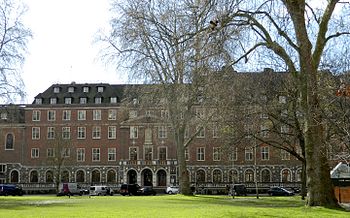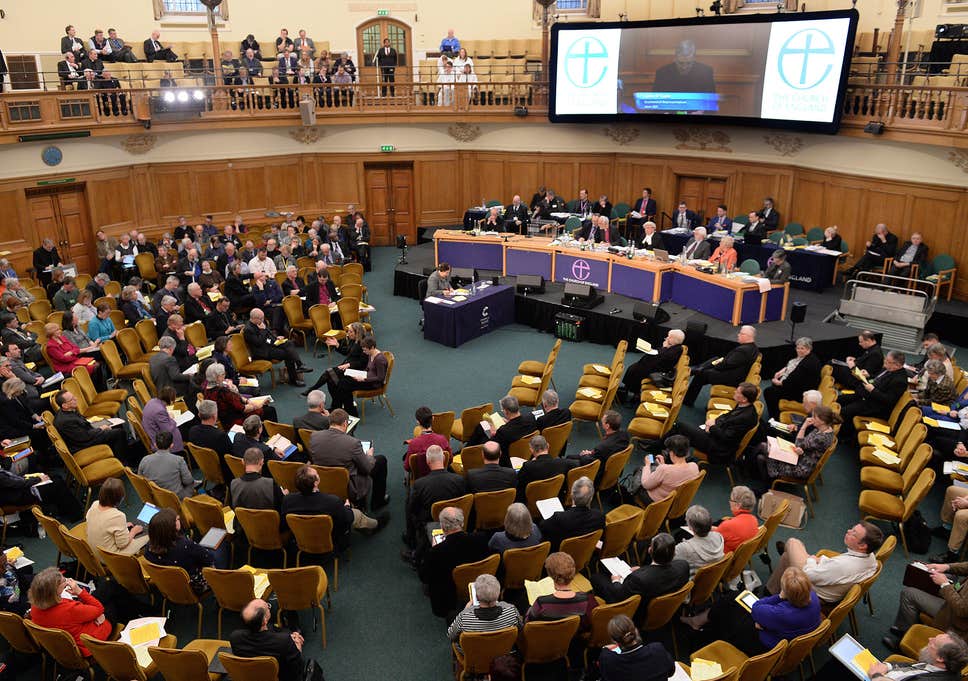
I recently received an email from someone I do not know about something he had read on this blog. It concerned the name of an offender that appeared on the bottom of the Open Letter from a group of survivors and published here in the lead up to General Synod. The name of the offender, known personally to my correspondent, is not important to share here. The writer of the email had done his own research and he knew that the inclusion of this name on the Open Letter was not based on gossip but rooted in solid reliable testimony.
Apart from expressing a sense of shock in the email, the writer had an interesting piece of information to share. He revealed that in spite of all the allegations against this clergyman, which had also freely appeared on Twitter and other social media and among the organisations that look after the interests of survivors, it was completely unknown or discussed in his former congregation. For whatever reason the congregation has chosen to be (been compelled to be?) kept completely in the dark. We must assume that the current leadership of this still flourishing church made a decision to keep this information from the congregation. Something similar seems to have been attempted within the REFORM/ReNew networks of congregations in their attempts to deal with the fall-out arising from the Jonathan Fletcher saga. What might be the explanation for these attempts to block information from a church? Neither of the explanations offered here suggests especially honourable or honest motivations. One line of reasoning on the part of leaders might be to consider that the failings of a leader are likely to undermine the faith of followers if they become public. Another fear that such leaders might feel is to consider that any sort of criticism of an erring leader is in fact an attack on the theology represented by the accused former leader. This sense of scandal, as having a ‘political’ dimension, will often enter into the calculations of those who control what congregations are allowed to think and know. Conservative evangelical congregations where many of the current crop of scandals are found, are not known for the free and open transmission of information. Holding on to power, money and influence seems to be more powerful than the sharing of truth, freedom and growth.
As I began to think through this attempt to ‘protect’ individuals and congregations from facing up to scandal, I realised that there is something profoundly toxic, even evil, about this behaviour. I imagined two parents of a pre-pubescent child who are offered access to a new drug. This drug, they are told, will circumvent all the tantrums, pain and conflict which may arrive with the onset of the teen-age years. They will have an ever-compliant child who will never be guilty of slamming doors and raising levels of stress and conflict in the home. Were the parent to buy into this wonder-drug, we know that it would raise many ethical issues, not to mention long-term potential psychological problems. Passing through stages of conflict or adjustment are part of life. They cannot be bypassed successfully without causing problems elsewhere. In summary we would say that it is at best immoral, at worst evil, to behave as the church leaders are doing at one particular church, where details of past abusive conduct are being deliberately hidden.
In contrast, I want in this post to think about the positive aspects of openness in dealing with scandal. Scandals of course will happen in churches of every tradition but there are ways of dealing with such events in a positive way rather than going down the road of denial and cover-up. The positive way of dealing with negative events is perhaps illumined by the pattern set out by Elizabeth Kubler Ross in her description of the grief process. Her pattern can be applied to any negative event faced by communities or individuals, such as a death or bereavement. Everyone accepts that it is not a good idea to encourage anyone to be in denial when a death takes place. The task of honest support for a bereaved person is what we can give them. They need someone to be there as they adjust painfully and slowly to this new reality of their loss. Sometimes a priest is asked to collude with the bereaved person’s attempt to deny that the death has happened. Both in the grieving process and in the honest confrontation with a terrible wrong-doing by a trusted leader, some of the other aspects of Kubler-Ross’ process may come to the fore. Institutionally these reactions can be seen in no particular order. We may well find the anger, the depression and the bargaining in various guises. In whatever way these stages emerge, each of these emotions may be needed at some stage as a way of adjusting to and at the same time dealing with a shocking event. The important thing is that the final stage of acceptance is eventually reached without any attempt to take short cuts. The whole process will require honesty, openness and candour on the part of a congregation faced with crisis. Acceptance is also a stage on the way to facing the future. A failure even to begin the process will freeze a congregation at the stage of denial. This is because the leaders deem it too risky or too painful to move the congregation towards healing.
One of the issues that we touched on in the last blog post is the state of idealisation that can bind a charismatic leaders to their followers even after they have died. Idealisation of another human being is likely to be in the long term an unhealthy bond. The ‘worshipper’ will always have a tendency to ascribe qualities to their adored leader which probably don’t exist except in the imaginations of the follower. Challenging idealisation of leaders in churches is always a healthy thing to do so that any situation of human frailty will be coped with far better. Betrayal of trust by a revered leader will always be tragic and painful. But it would easier to deal with if every leader had already constantly reminded the congregation that they shared the same humanity and fallibility with them, the congregation members. It is the superhuman, god-like status of some leaders thrown up by the narcissistic process that is so damaging. Having a ‘super-star’ for a leader may fill seats and increase church income, but it is a potentially a construction of fantasy which can easily collapse and fall. Some leaders protect their god-like status by never being visible except on stage. There they are surrounded by clever lighting effects which are impressive to followers. When faith in God is damaged by the collapse into scandal of the celebrity preacher, one has to ask whether it was God or the preacher who had been at the centre of the action inside the followers’ heads.
Dependent passive relationships with fallible narcissistic leaders seem to be at the heart of many scandals and breakdowns in church life. Such relationships will always exist because inside many of us is a wounded relationship with a parent. By wounded I mean something incomplete rather than necessarily highly traumatic. Whatever it is, it will render large numbers of us vulnerable to some extent to a leader who promises to re-parent us with offers to connect us to the ultimate parent, God himself. That promise is also at the heart of the ‘cult’ contract. It is helping to sort out these various layers of vulnerability and need that should be a major task of Christian leadership. Sadly, we find that some of these leaders prefer to keep us in the place of dependency so that we can be exploited to suit their own needs and desire for gratification.
.








